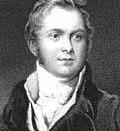PRIME MINISTER & CABINET
Questions:
1)What is collective ministerial responsibility?(5)
2)Outline the role of the cabinet.(10)
3)What factors influence the prime ministers appointment of ministers?(15)
4)How powerful is the prime minister?(20)
Answers:
1)The term simply refers to the notion of more than a single individual making decisions, and thus being held to account for them solely. The fact that it is ministerial responsibility means that it is in fact the cabinet ministers collectively making choices. The reasoning behind this is perhaps that the many different people could represent different views, or in fact simply as the more minds working a situation, the better (within limits). Another term for such is collegiality. As with the term collective responsibility, part of the actual responsibility is all those under it must agree with all put forward by the superior, in this case, the Prime Minister. Usually, if whatever case, say whether or not unmarried couples can adopt, is up for discussion by the cabinet, then after a majority has been reached, the rest of the ministers must agree with it.
If a minister does not agree, he or she must both keep his/her views silent, and in the public eye defend the subject in question as if he/she was in favour of it. If the minister in question firmly disagrees with the majority, then he/she must resign, or attempt to disagree with the cabinet/prime minister and face the consequences. These would probably include no further progression in their career although quite possibly, some more severe "below ground punishments" which would not be made as public as resignation.
2)The cabinet of the British Government has many roles, one of which is collective responsibility, as described above. One very important reason for this is that the party, however untrue, must appear to the public to...


